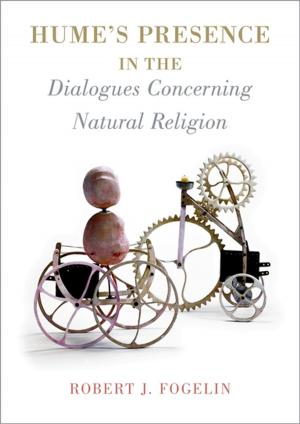The Last Pagans of Rome
Nonfiction, History, Ancient History, Rome, Religion & Spirituality, Christianity, Church, Church History| Author: | Alan Cameron | ISBN: | 9780199890132 |
| Publisher: | Oxford University Press | Publication: | December 21, 2010 |
| Imprint: | Oxford University Press | Language: | English |
| Author: | Alan Cameron |
| ISBN: | 9780199890132 |
| Publisher: | Oxford University Press |
| Publication: | December 21, 2010 |
| Imprint: | Oxford University Press |
| Language: | English |
Rufinus' vivid account of the battle between the Eastern Emperor Theodosius and the Western usurper Eugenius by the River Frigidus in 394 represents it as the final confrontation between paganism and Christianity. It is indeed widely believed that a largely pagan aristocracy remained a powerful and active force well into the fifth century, sponsoring pagan literary circles, patronage of the classics, and propaganda for the old cults in art and literature. The main focus of much modern scholarship on the end of paganism in the West has been on its supposed stubborn resistance to Christianity. The dismantling of this romantic myth is one of the main goals of Alan Cameron's book. Actually, the book argues, Western paganism petered out much earlier and more rapidly than hitherto assumed. The subject of this book is not the conversion of the last pagans but rather the duration, nature, and consequences of their survival. By re-examining the abundant textual evidence, both Christian (Ambrose, Augustine, Jerome, Paulinus, Prudentius) and "pagan" (Claudian, Macrobius, and Ammianus Marcellinus), as well as the visual evidence (ivory diptychs, illuminated manuscripts, silverware), Cameron shows that most of the activities and artifacts previously identified as hallmarks of a pagan revival were in fact just as important to the life of cultivated Christians. Far from being a subversive activity designed to rally pagans, the acceptance of classical literature, learning, and art by most elite Christians may actually have helped the last reluctant pagans to finally abandon the old cults and adopt Christianity. The culmination of decades of research, The Last Pagans of Rome overturns many long-held assumptions about pagan and Christian culture in the late antique West.
Rufinus' vivid account of the battle between the Eastern Emperor Theodosius and the Western usurper Eugenius by the River Frigidus in 394 represents it as the final confrontation between paganism and Christianity. It is indeed widely believed that a largely pagan aristocracy remained a powerful and active force well into the fifth century, sponsoring pagan literary circles, patronage of the classics, and propaganda for the old cults in art and literature. The main focus of much modern scholarship on the end of paganism in the West has been on its supposed stubborn resistance to Christianity. The dismantling of this romantic myth is one of the main goals of Alan Cameron's book. Actually, the book argues, Western paganism petered out much earlier and more rapidly than hitherto assumed. The subject of this book is not the conversion of the last pagans but rather the duration, nature, and consequences of their survival. By re-examining the abundant textual evidence, both Christian (Ambrose, Augustine, Jerome, Paulinus, Prudentius) and "pagan" (Claudian, Macrobius, and Ammianus Marcellinus), as well as the visual evidence (ivory diptychs, illuminated manuscripts, silverware), Cameron shows that most of the activities and artifacts previously identified as hallmarks of a pagan revival were in fact just as important to the life of cultivated Christians. Far from being a subversive activity designed to rally pagans, the acceptance of classical literature, learning, and art by most elite Christians may actually have helped the last reluctant pagans to finally abandon the old cults and adopt Christianity. The culmination of decades of research, The Last Pagans of Rome overturns many long-held assumptions about pagan and Christian culture in the late antique West.















